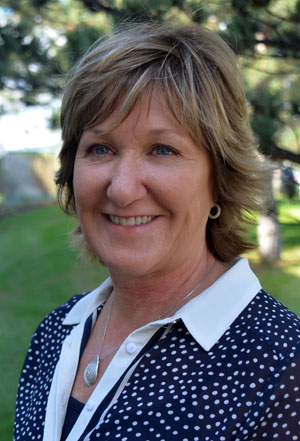Doctoral work examines the determinants of health for Aboriginal people

Donna Kurtz, an associate professor at UBC’s Okanagan campus, has won the Award for Excellence from the International Journal of Health and Wellness.
Donna Kurtz, an associate professor of nursing at UBC’s Okanagan campus, has won the Award for Excellence from the International Journal of Health and Wellness for research about social justice and health equality for Aboriginal women.
Kurtz, along with colleagues Shuswap Elder Jessie Nyberg, doctoral supervisor de Sales Turner, and Diana Moar, of the Berens River First Nation, submitted the research paper Social Justice and Health Equality: Urban Aboriginal Women’s Action for Health Reform. It was selected from among the 10 highest-ranked peer-reviewed papers for the top international award. Kurtz, Aboriginal liaison with the Faculty of Health and Social Development at UBC’s Okanagan campus, says the award is an honour and a surprise.
“This research clearly explains determinants of health for Aboriginal people, which includes social exclusion because of physical appearance, gender and being ‘marked’ and how this contributes to less opportunities in all aspects of their lives – education, health, and human, and Aboriginal rights,” says Kurtz, who is Métis.
The research highlighted in the article is part of Kurtz’s doctoral work. She is the Canadian Lead and International co-chair of the International Network of Indigenous Health Promotion Professionals. She will soon return to Brazil, where last spring she taught Indigenous health, cultural safety, and shared UBC’s story of how it supports Aboriginal health science students. She also visited a rural Aboriginal health centre while there.
“We benefit every day from the work that Dr. Kurtz and her Aboriginal community partners have developed with students, faculty, and international university partners,” says UBC Okanagan’s School of Nursing Director Prof. Patricia Marck. “This award is well deserved, independent recognition of the quality of their contributions to health equity for all Indigenous peoples.”
Kurtz, involved with the Aboriginal Nurses Association of Canada, recently returned from Australia, where she presented research on the community driven interdisciplinary cultural safety education curricula, and recruitment and retention of Aboriginal students at UBC.
“The findings of this study discussed in the journal article have implications for front line health care workers, health care professionals, educators, clinical practice, research, and public policy,” says Kurtz. “It is our goal and intention that respectful and non-discriminatory health care will be provided for Indigenous people globally.”




0 Comments